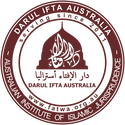Question:
1. If someone passes away and leaves behind funds which has been allocated to an estate or trust of people, with real beneficiaries, and this trust owns a property, will zakaat be payable on the cash at bank?
2. If there is a charitable trust which has a cash account in bank, namely general account( non zakaat), which collects funds from muslims for various islamic projects and then undertakes various islamic projects, example dawah work, charitable work and humanitarian work, is zakaat payable on this general account (cash at bank) Answer: In the Name of Allah, the Most Gracious, the Most Merciful.
For zakaat to be compulsory on any wealth, one of the requirements is that the wealth must belong to someone i.e. it must be owned by someone. The funds of charitable trusts do not belong to anyone in particular (until handed out to deserving people, for example) as they are collected for the benefit of the people. The trusts are merely responsible for taking care of and managing the funds.
Therefore, the answer to both the questions is that zakaat is not payable on the cash obtained by charitable trusts since the cash does not belong to any individual. Mufti Kifayatullah (may Allah have mercy on him) writes: “Zakaat is not obligatory on the funds belonging collectively to a group that are collected for the benefit of the people. Also, zakaat is not obligatory on the funds belonging to the masjid. Zakaat is compulsory on money in the ownership of someone.” (Kifayatul Mufti vol. 4 pg. 265 pub. Darul Isha’at) Mufti Mahmoodul Hasan (may Allah have mercy on him) writes: “If a madrasa or a masjid has funds, zakaat is not obligatory on the funds even if it reaches the nisaab.” (Fataawa Mahmoodiya vol. 9 pg. 327 pub. Maktaba Sheikhul Islam Deoband) (Raddul Muhtaar vol. 3 pg. 208 pub. Darul Ma’rifa) في الدر المختار: ( وسببه ) أي سبب افتراضها ( ملك نصاب حولي ) ؛ وقال ابن عابدين رحمه الله: ( قوله ملك نصاب ) فلا زكاة في سوائم الوقف والخيل المسبلة لعدم الملك ( رد المحتار ج 3 ص 208 ط دار المعرفة )
ه |
DISCLAIMER – Mufti-Online.net questions
Mufti-Online.net answers issues pertaining to Shariah. Thereafter, these questions and answers are placed for public view on www.mufti-online.net for educational purposes. However, many of these answers are unique to a particular scenario and cannot be taken as a basis to establish a ruling in another situation or another environment. Mufti-Online.net bears no responsibility with regards to these questions being used out of their intended context.
Mufti-Online.net answers issues pertaining to Shariah. Thereafter, these questions and answers are placed for public view on www.mufti-online.net for educational purposes. However, many of these answers are unique to a particular scenario and cannot be taken as a basis to establish a ruling in another situation or another environment. Mufti-Online.net bears no responsibility with regards to these questions being used out of their intended context.
- The Shariah ruling herein given is based specifically on the question posed and should be read in conjunction with the question.
- Mufti-Online.net bears no responsibility to any party who may or may not act on this answer and is being hereby exempted from loss or damage howsoever caused.
- This answer may not be used as evidence in any Court of Law without prior written consent of Mufti-Online.net.
- Any or all links provided in our emails, answers and articles are restricted to the specific material being cited. Such referencing should not be taken as an endorsement of other contents of that website.







